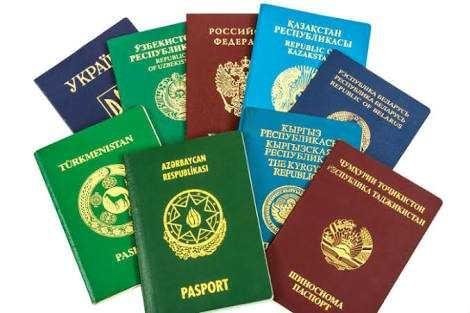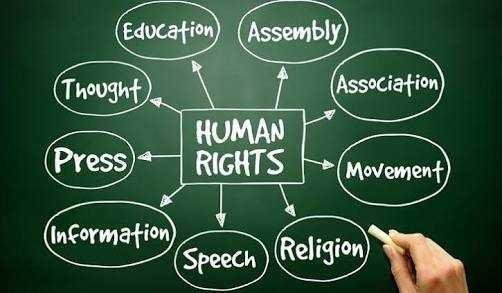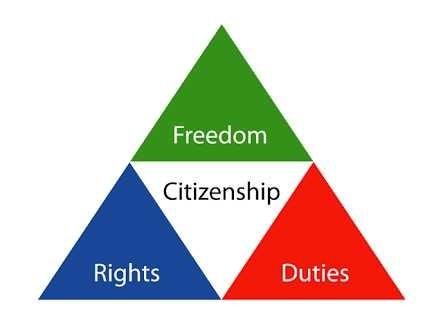A BRIEF ANALYSIS OF MORAL AND SOCIO-POLITICAL RIGHTS OF CITIZENS IN NIGERIA
Ancient Origins
It is very difficult if not impossible to trace the origins of citizenship without going back to Greek philosophers. Indeed, Greek philosophers are best known as the systematizers of early “scientific thought”. In early Athenian society, the concept of citizen was very different from what we know of it today. Plato and Aristotle, for instance, had a strange and unique understanding of citizenship. According to them, a citizen was he who was born into or classified within the penumbra of the ruling class or the Aristocratic class. That is, the philosopher-king, the guardian and the like. Only this category of people could exercise the right to life, private property, education, leadership, vote and be voted for, etc. To Plato and Aristotle, anyone outside the foregoing categories was just an ordinary person, someone of low birth or a servant. He did not deserve the status of a citizen. His lifestyle could not go beyond that of an animal. Indeed, he was someone totally imbued with passions instead of reason.
Contemporary Origins
The contemporary origin and understanding of citizenship different from that of Plato and Aristotle can be traced to as far back as 1789. The declaration of the Rights of Man issued by the National Assembly of France during the French Revolution in 1789 gave a universal and an unbiased dimension to citizenship. We could hear statements such as
Men are born and always continue, free and equal in respect of their rights (Appadorai, 1975:86). We hold these truths to be self-evident; that all men are created equal… was also found in the American Declaration of independence in 1776.
How to Become a Citizen of a State in Nigeria

According to The Oxford Advanced Dictionary of Current English, a citizen is he that has full rights in a State either by birth or by gaining such rights. In a simple language, citizenship means the totality of all rights and privileges accorded to all members of a given state.
In Nigeria, there are at least two ways of acquiring citizenship, namely by birth and by legal process.
Citizenship by Birth
The citizenship by birth is also called Jus Sanguinis. In Nigeria, there are some conditions to fulfill in order to acquire citizenship by birth:
i. For instance, all persons born in Nigeria before independence either of whose parents or any of whose grand parents belong an an indigenous Nigerian community.
ii. All persons born in Nigeria after independence either of whose parents or any of whose grand parents is a Nigerian Citizen are automatically citizens of Nigeria.
You should also remember that the citizenship by Jus Sanguinis does not necessarily mean that you must be born within Nigeria. As long as your parents are citizens of Nigeria, it does not matter where you are born in order to acquire citizenship status. However, this is different from the so-called law of soil or place. In the case of the law of soil (also called Jus Soli), any person born within the territorial jurisdiction of a State is automatically a citizen of that State irrespective of the citizenship of the parents. This is clearly stated in the 14th Amendment of the United States of America: “All persons born or naturalized in the United States and subject to the jurisdiction thereof are citizens of the United States and the State wherein they reside.”
Citizenship by Legal Processes
Naturalization is the commonest legal mode of acquiring the citizenship of a State. You should know that there are at least three forms of naturalization namely:
Direct Naturalization
Here, the individual acquires the citizenship of a State after he has fulfilled the prescribed legal prerequisites as determined by that state. In Nigeria’s case, for instance, an applicant must be resident in the country for a continuous period of fifteen years, or for at least fifteen of non-continuous twenty years, including twelve consecutive months immediately preceding application to the president for the grant of certificate of naturalization. Besides, the applicant must be able to contribute to the growth or advancement of Nigeria; must be of age and capacity, and must be of good character and wishes to be domiciled in Nigeria. Furthermore, the person must satisfy the Governor of the State of residency that he or she is acceptable to the immediate community and has indeed been assimilated into its norms, values, etc.
Derivative Naturalization
This simply means that a spouse or a child becomes or acquires citizenship status as a result of the parents’, spouses’ or relatives’ direct naturalization.
Collective Naturalization
In this case, a group of people occupying a defined territory acquires the citizenship privileges of another either by treaty or by statute annexing the territory to a new one.
Rights and Privileges of Citizens

You should know that in any State the individual must have his rights and privileges as well. Civil liberty is an aggregate of the rights recognized by the State. Gettel, according to Appadorai (1975), contends that civil liberty consists of the rights and privileges which the state creates and protects for its citizens. The most important of these rights and privileges that citizens of any state enjoy can be grouped into two, namely: political rights and civil rights
a. Political Rights
Here every adult citizen for instance, is entitled to vote or be voted for in any election unless and until he is disqualified by competent authority of the State.
b. Civil Rights
These are rights that inhere in the individual, and they must, ipso facto, be protected by the basic law or the constitution, and indeed, the legal process of the state. These are rights to:
a. Life, dignity of human person, personal liberty, fair hearing,
b. Freedom of thought, private and family life, peaceful assembly and association, freedom of movement and freedom from discrimination.
Obligations of Citizens

As stated earlier, besides the rights and privileges the individual enjoys as a member of the state, he also has some obligations vis-is-vis the State. These obligations can be summarized as follows:
• A citizen is expected to place the interest of the State before any other interest;
• A citizen must pay his tax promptly;
• A citizen must obey the laws of the State;
• A citizen must defence of the State against internal and external enemies;
• A citizen must uphold the honour and dignity of the State; and
• A citizen must respect the symbol and symbolism of the State.
REFERENCES FOR FURTHER READINGS
Appadorai, A. (1995). The Substance of Politics. London: Oxford University Press.
Federal Republic of Nigeria. The Constitution. Lagos: Federal Ministry of Information, 1979.
Federal Republic of Nigeria. The Constitution. Lagos: Daily Times Publication, 1989.
I upvoted your post.
Best regards,
@Council
Posted using https://Steeming.com condenser site.
Congratulations @naijamall! You have completed the following achievement on the Steem blockchain and have been rewarded with new badge(s) :
Click on the badge to view your Board of Honor.
If you no longer want to receive notifications, reply to this comment with the word
STOPDo not miss the last post from @steemitboard: